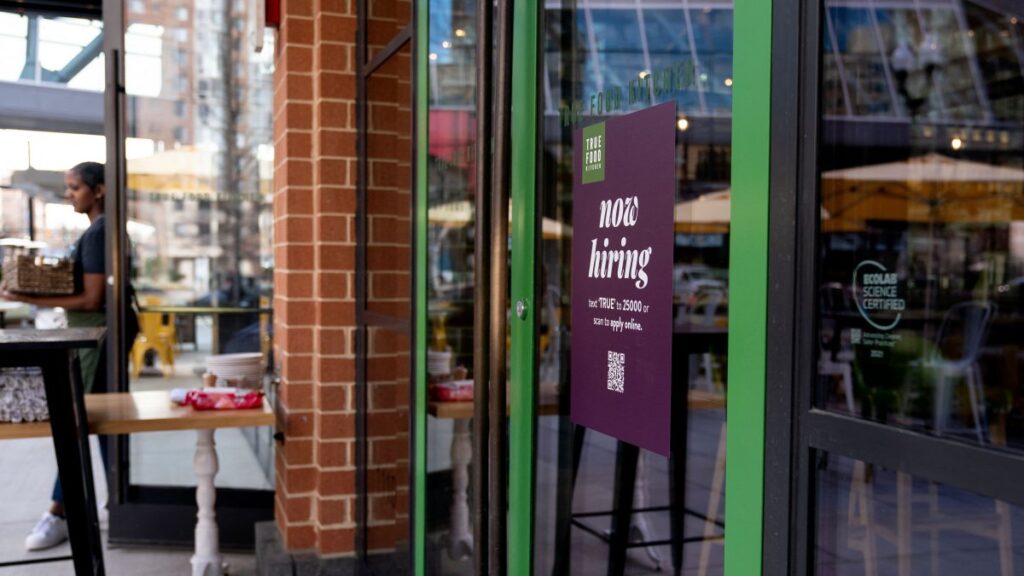Demand for air cargo rose 6.9% in 2021 compared to 2019, the International Air Transport Association estimates.Disruptions in ocean shipping is likely to keep demand for air freight up, analysts said.The trend is spurring airlines to convert a record number of passenger planes into freighters.Get the latest tech news & scoops — delivered daily to your inbox.
Loading Something is loading.
Email address By clicking ‘Sign up’, you agree to receive marketing emails from Insider as well as other partner offers and accept our Terms of Service and Privacy Policy .Nearly 90% of the world’s goods are transported via ocean freighters, but the industry has been in a state of crisis for two years.
On top of being disrupted by the pandemic, shipping now faces even more complications because of the war in Ukraine.
In the midst of the shipping industry’s issues, demand for air cargo is rising.Volumes transported by air cargo rose 6.9% in 2021 compared to 2019, according to the International Air Transport Association (IATA).The group skipped data for 2020 due to pandemic distortion.
Now, airlines are lining up to convert old passenger planes into freighters.
Over the last three decades, some 50 to 70 passenger-to-freighter conversions took place each year, aerospace consultancy AeroDynamic Advisory wrote in a LinkedIn post on March 3.Today, demand is skyrocketing: AeroDynamic said it expects conversions to more than double to 180 a year by 2025.
“Trade via air cargo continues to be something that is growing because of the growth of e-commerce and also because shipping is also not very efficient these days, causing some delays,” Shukor Yusof, founder of aviation consulting firm Endau Analytics, told Insider.
But it’s not a perfect solution: The cost of transporting goods via air cargo is significantly higher than by shipping — and the consumer may well be the one paying the difference.
The rise of air freight could feed into inflation The shipping industry crisis has been fed by a global labor crunch and operational issues tied to vaccine recognition, border controls, and quarantine requirements amid the pandemic.
The war in Ukraine is likely to further complicate the crisis , as about 15% of seafarers are Russian or Ukrainian, per the International Chamber of Shipping.
Sanctions against Russia could make it difficult to pay staff, and it could become more difficult to recruit Ukrainian seafarers because country has banned all male citizens from the ages of 18 to 60 from leaving the country.
Bottlenecks in ocean shipping has boosted air freight.Associated Press/Richard Vogel Air freight has become an appealing alternative — particularly for smaller, expensive items like semiconductor chips, and perishables like food.
“Air cargo volumes have been rising as the global economy recovers from the pandemic, as bottle necks in the supply chain persist,” said Nirgunan Tiruchelvam, head of consumer sector equity research at Tellimer, a London-based research house.
While about 2% to 3% of the world’s trade by volume is transported via planes, it represents 35% of global trade value, according to law firm Reed Smith.
By contrast, around 90% of the world’s traded goods are carried via ocean freight, which is four to six times cheaper than air freight.As energy inflation heats up, jet fuel prices — alongside oil — also hit 14-year highs earlier this month.The increased cost in air transportation will feed into inflation, said Tiruchelvam.
And that’s where the trouble for the consumer comes in.
As companies look to recover from the hit their earnings took during the pandemic, it’s likely companies “will pass the cost to end users,” Tiruchelvam told Insider.
Both Yusof and Tiruchelvam said perishable foods, like fresh produce, are among the products that could be air-flown more due to supply chain disruptions.
Airlines’ shift to more cargo services may be here to stay Cargo now accounts for about 30% of the revenue for a typical airline business.
That’s up from 10% to 15% before the pandemic, according to an IATA report released in May.But cargo capacity last year was “constrained” at about 10% lower than in 2019, IATA said in January.
That, Yusof said, is in part because cargo capacity in passenger planes has been slashed in the pandemic as travel has plunged.
To cater to the demand, airlines have been acquiring new cargo planes — but it’s more cost-effective to convert an old passenger plane to a freighter.A new freighter can cost hundreds of millions of dollars, but acquiring and converting an old passenger plane costs tens of millions of dollars, Insider’s Thomas Pallini reported last February.
Some old passenger planes are getting converted to freighters as demand for air cargo booms.Israel Aerospace Industries Demand used to come from dedicated cargo companies like DHL and FedEx, but passenger airlines are also entering the space, Yusof said.Last week, Alaska Airlines — the fifth-largest airline in the US — announced it was converting two of its midlife narrow body Boeing 737-800 into cargo planes.The carrier said it has already converted three smaller Boeing 737-700s dedicated to cargo.
One company that’s seen a big boost for its conversion services is Israel Aerospace Industries (IAI).Before the pandemic, it converted about 18 aircraft a year.
Last year, it converted 25 aircraft.
“As our society has become more accustomed to ecommerce, we expect to see a continuous upward trend in the need for cargo planes and for the most cost-effective solution — cargo plane conversions,” an IAI spokesperson told Insider.
The shift toward more cargo services could be permanent for passenger airlines as business travel may not return to pre-pandemic levels, said Yusof.
“There will be increasing demand for a lot of aircraft to be converted into cargo,” he told Insider.”I don’t think we’ll go back to where we were pre-Covid.The aviation landscape has changed.”
Sign up for notifications from Insider! Stay up to date with what you want to know.
Subscribe to push notifications.
